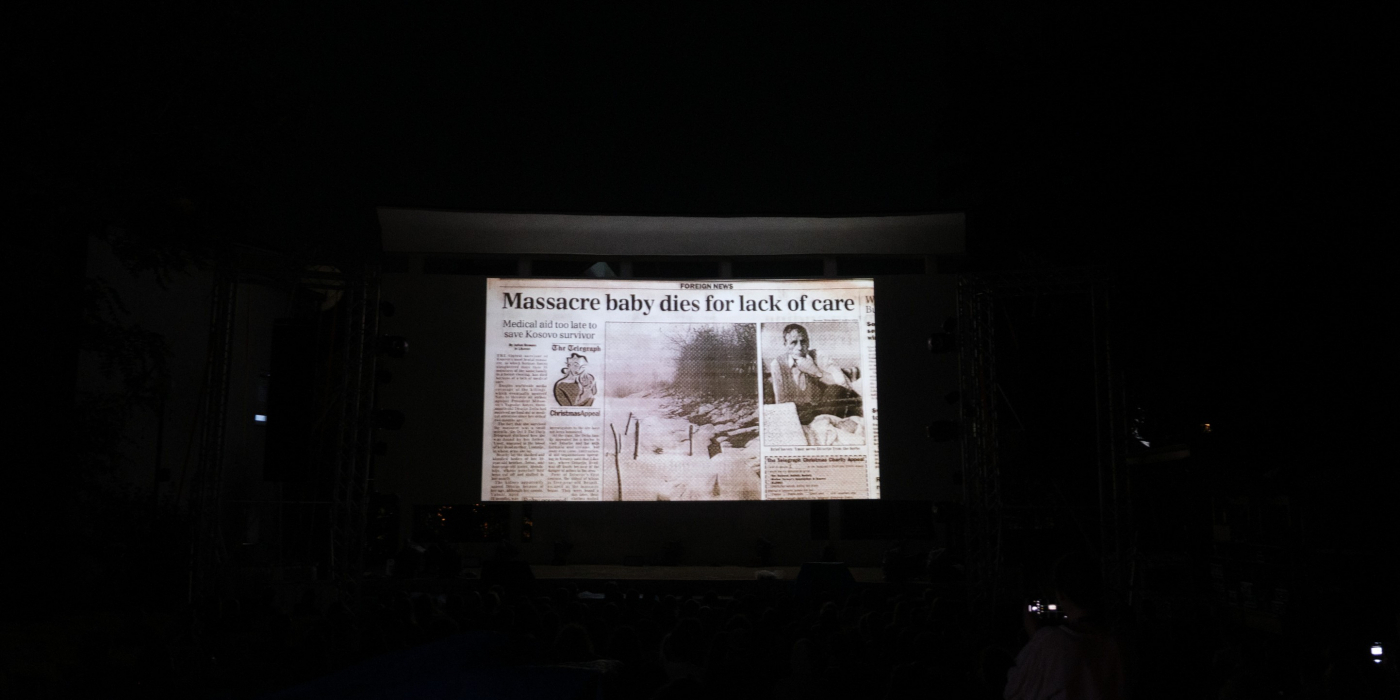09/08/2024
The return of the journalist Julius Strauss in Kosovo after two decades, was not an easy one. After being a war correspondent for many years, in different war zone around the world, and then – followed up by a life in Canada trying to find peace and calm after many traumatic events, he gets a message from Besnik Deliu, the then kid in Obri, who survived a massacre, and now a grown up man, trying to reconnect with his past, no matter how difficult it is.
The pace of the documentary is suspenseful and thoughtful, and the audience goes through all the details that the Deliu family had gone through. The contact Besnik made, sparked the desire for Julius to actually come to Kosovo and see what has become of this family. We go through the footage of the village where this massacre happened, where 23 members of the family were murdered by the Serbian forces, mostly including women and children.
Through Besnik’s testimony we see the immense difficulty to deal with an unimaginable past, yet the hope and force he got from his uncle, Ymer Deliu and as Julius Strauss described in the Q&A: He (Ymer) is one of the most dignifying and extraordinary people he had ever met in his life. In the documentary, Julius and the surviving children (now grown up) reflect on the impact their uncle had in shielding them from the tragedy and their urge to know and confront the past still remains pertinent.
The opening of the documentary directs many questions on who would do such a terrible thing to people who had done nothing wrong in their lives. But looking at the past through the eyes of Ymer and his nieces and nephews, those who remain still feel it is important and crucial for them to talk about what happened after the war, because the world needs to know.
There are many themes revealed in the documentary such as the trauma processing of the survivors, the power of the media, the reconnections and the ways we do not want people to not disappoint us in peace. In the Q&A developed after with the crew and Veton Nurkollari, the audience expressed their gratitude to the everyone involved in this documentary because of how important and necessary these stories were to be told.
Strauss, said that the idea to initiate this documentary was of his daughter, Emma, who then explained briefly that she felt an immediate connection to the story, due to her being in the same age as Besnik, and both of them having completely different lives and also trying to understand the strong connection her father had to the Deliu family.
One of the most awaited specials screenings in DokuFest, happened last night (and will happen also today Aug. 9 by 22:30 at Kino Lumi) and some of the main voices around were professing in a way that what we were about to see, is tough, emotional, strong, touching but not always pinpointing to the main story, due to the delicate subject.
It is always interesting to fit a span of work into a certain words, just as to refer to the experience, but “Return to Kosovo” expresses the sorrow and hurt and hope and the many intrinsic ideas of what the future can hold. It is a must watch.
By: Blerina Kanxha
Photo: Luka Knežević Strika



